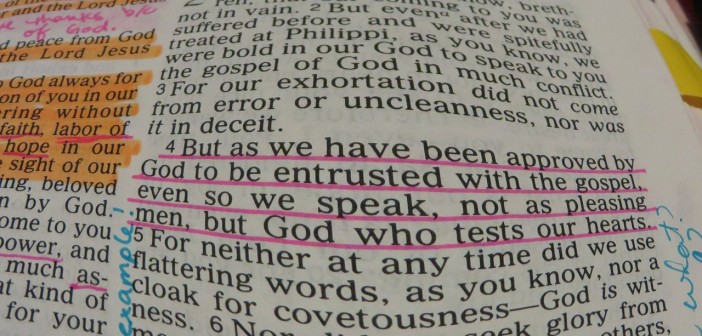The Washington Post recently published a series of in-depth stories on each of the Democratic and Republican presidential candidates. The feature article on former Baptist pastor and Arkansas governor Mike Huckabee appeared in the December 15, 2007 edition of the paper. The front-page story giving the narrative of Huckebee’s life began with an eye-catching large-print quotation: Huckabee’s decision to enter the ministry, announced before his senior year of high school, disappointed a number of admiring teachers and classmates. Why would he squander such obvious leadership potential, they asked, to be a preacher?
The church desperately needs the energy, passion, and perspectives that talented young persons can bring to church leadership, including clergy leadership.
“He loved to preach.”
At the same time I read these words, I learned of the death of a clergy colleague from my years as a pastor in Mississippi. As I thought about his life and ministry, I realized that he, too, was the kind of outstanding high school student whom teachers and classmates believed could accomplish great things in whatever vocation he chose. He went to a competitive college and a fine theological school to prepare for a lifetime of ordained ministry. In his first year back in Mississippi, at the age of twenty-five, he had to decide whether to join with twenty-seven other Mississippi clergy in signing a “Born of Conviction” statement regarding racial injustice.
He must have known that this act would mark him as a “troublemaker” among the white power structure of the church and society. He also must have known that this act could end his days as a pastor in Mississippi, even as they were just beginning, a fate that befell a large number of the twenty-eight. But he was one of the group who stayed in Mississippi and served with distinction as a recognized leader in pivotal appointments until his retirement a few years ago.
With the newspaper quotation in front of me, I called my friend’s widow to express sympathy for her loss. The faithful, sensitive, and courageous husband she described was indeed the friend I had known. One of the last things she said was, “He loved to preach.”
He loved to preach not because it was the only thing he could have done with his life. He became an outstanding religious leader in his state and denomination, but he could just as well have reached the highest ranks in any number of professions. He loved to preach because he was convinced that God had called him to this ministry. Neither he, nor those who knew him, ever thought that he was “squandering leadership potential.”
Investing One’s Life Effectively
The distinguished theologian Reinhold Niebuhr tells of a time in his mid-thirties when he was a pastor in Detroit and, after he had spoken at a college, a “very sophisticated young man” assured Niebuhr that no intelligent person would enter the ministry today. Niebuhr’s response, recorded in a 1928 journal entry, was:
Granted all the weaknesses of the church and the limitations of the ministry as a profession, where can one invest one’s life where it can be made more effective in as many directions?
You can deal with children and young people and help them to set their life goals and organize their personalities around just and reasonable values.
You can help the imperiled family shape the standards and the values by which the institution of family life may be saved and adjusted to the new conditions…
You can awaken a complacent civilization to the injustices which modern industrialism is developing…
You can soften the asperities of racial conflict…
You can direct the thoughts and the hopes of [people]to those facts and those truths which mitigate the cruelty of the…world…
Here is a task which requires the knowledge of a social scientist and the insight and imagination of a poet, the executive talents of a business [leader]and the mental discipline of a philosopher. Of course none of us meets all the demands made upon us…
(Leaves from the Notebook of a Tamed Cynic, 1929; reissue edition, Westminster/John Knox Press, 1991, 137-138)
No Higher Calling
Today’s denominational efforts to lift up God’s call to ordained ministry are sending a much-needed signal to youth of the church that ordained ministry is for those who could do anything they wish and still choose to accept God’s call upon their life’s vocation.
The church desperately needs the energy, passion, and perspectives that talented young persons can bring to church leadership, including clergy leadership. They are needed not as saviors of the church, but as partners, to shape a new church in response to a radically different cultural context. New young leadership is needed not to preserve a fading past but to help shape an emerging church that engages the world for Christ, transforming lives and communities.
God is still calling people of all ages to “squander leadership potential” for the sake of the Gospel.







